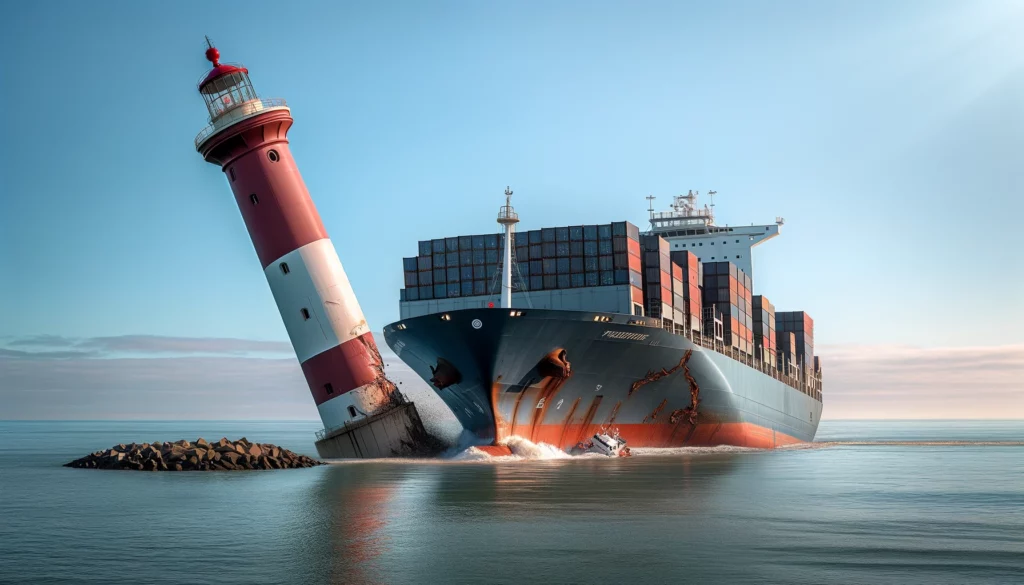Allisions can result in severe damage to both vessels and objects, and they may cause injuries or fatalities to those on board or nearby. We show the legal complexities associated with securing compensation for allision victims, including the determinants of damages and liability.

Determining Liability
The first question revolves around liability. Typically, the presumption is that the moving vessel is at fault, unless it can establish that the allision resulted from an unavoidable accident, an act of God, or the fault of the stationary object. The onus is on the moving vessel to overcome this presumption by demonstrating that it exercised reasonable care and skill in navigating and avoiding the allision.
Types of Damages
The second question pertains to the types of damages that allision victims can claim. Depending on the circumstances, various types of damages may be available, including:
- Property Damage: Encompassing the costs of repairing or replacing the damaged vessel or object, as well as any cargo or personal property on board or nearby.
- Personal Injury: Covering medical expenses, lost wages, pain and suffering, and other losses sustained by the injured parties due to the allision.
- Wrongful Death: Addressing funeral expenses, loss of support, loss of companionship, and other losses experienced by surviving family members of those who perished in the allision.
- Punitive Damages: Awarded as an additional amount to penalize the liable party for gross negligence, recklessness, or intentional misconduct contributing to the allision.
Calculating Damages
The third question involves how to determine the amount of damages. This calculation hinges on factors such as:
- The extent and severity of damage or injury,
- The level of fault or responsibility of each party involved,
- The pertinent maritime laws and regulations governing claims,
- The accessibility and constraints of insurance coverage,
- The evidentiary support and witnesses backing each claim, and
- The negotiation and settlement processes between the parties.
Pursuing a Compensation Claim
The fourth question pertains to pursuing a claim for compensation, which may involve several steps, including:
- Reporting the allision to relevant authorities and insurers,
- Collecting and preserving evidence and documentation related to the allision,
- Seeking medical attention and treatment for any injuries,
- Consulting with a qualified maritime lawyer to explore legal rights and options,
- Initiating a lawsuit or arbitration claim against the liable parties, and
- Engaging in negotiations or litigation to secure fair and equitable compensation.
Allision incidents are intricate and can have profound repercussions for both property and individuals. If you or someone you know has been involved in an allision, seeking legal assistance promptly is essential to safeguard your interests and pursue justice.
